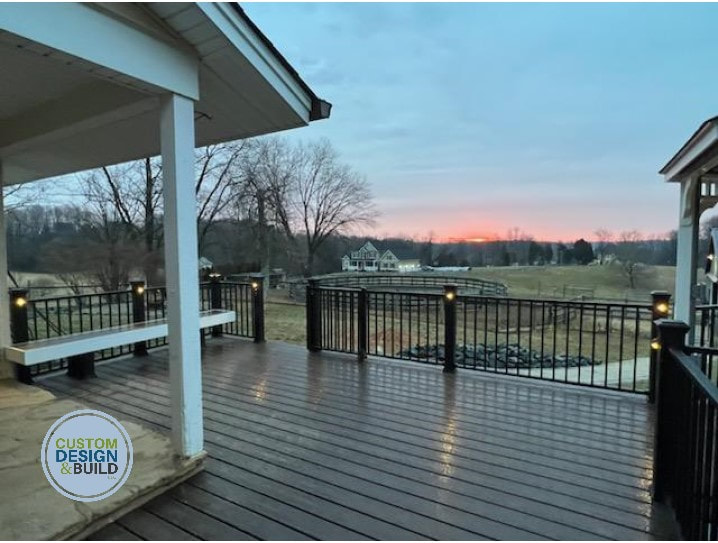Unveiling the Distinctions: PVC vs. Capped Composite Decking

- PVC Decking: Durability and Low Maintenance PVC decking is crafted from synthetic plastic polymers, offering exceptional durability and longevity. Its remarkable resistance to moisture, rot, and insects makes it a reliable choice for outdoor applications. PVC decking requires minimal maintenance, as it resists staining, fading, and warping. With a vast array of colors and styles available, PVC decking provides homeowners with versatility and aesthetic options to suit their preferences.
- Capped Composite Decking: A Blend of Performance and Aesthetics Capped Composite decking combines a core of recycled wood fibers and high-quality polymers, encased in a protective shell. This innovative design provides the best of both worlds: the natural appearance of wood and the durability of synthetic materials. The protective cap shields the composite core from moisture, stains, and UV rays, ensuring longevity and color retention. Capped Composite decking is an ideal choice for those seeking the authentic look of wood without the associated maintenance.
- Performance and Weather Resistance: Both PVC and Capped Composite decking excel in weather resistance. PVC decking’s non-porous nature prevents moisture absorption, making it highly resistant to mold, mildew, and rot. Capped Composite, with its protective shell, offers enhanced resistance to fading, staining, and scratching, ensuring long-term beauty and performance even in harsh weather conditions.
- Maintenance Requirements: PVC decking’s low-maintenance qualities shine through, as it requires only occasional cleaning with soap and water to maintain its appearance. Capped Composite decking shares a similar advantage, needing minimal upkeep, with occasional cleaning to remove debris and stains. Both options spare homeowners from time-consuming tasks such as sanding, staining, or sealing.
- Sustainability: For eco-conscious homeowners, Capped Composite decking presents a notable advantage. By incorporating recycled materials into its composition, it reduces the demand for virgin wood, making it an environmentally friendly choice.
Conclusion: When it comes to selecting the ideal decking material, understanding the differences between PVC and Capped Composite is crucial. PVC decking offers exceptional durability and low maintenance, while Capped Composite decking combines performance with the natural beauty of wood. At Custom Design and Build, our expertise in installing both materials ensures that you can make an informed decision based on your unique needs and preferences.
Remember, no matter which option you choose, investing in a quality deck installation by trusted professionals will guarantee a beautiful and long-lasting outdoor space for you and your loved ones to enjoy for years to come. Contact Custom Design and Build today to explore the possibilities and transform your outdoor living area into a stunning retreat.
